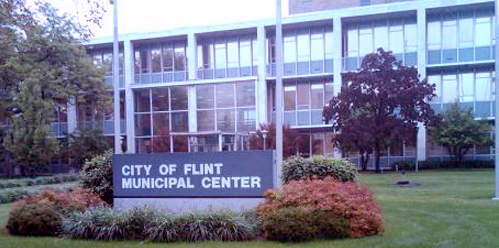
FLINT – As of March 1, Flint became the 19th city in Michigan to adopt a Human Rights Ordinance that prevents discrimination based on sexual orientation. In addition to protecting gays and lesbians, the ordinance includes protections for sexual orientation, gender expression, and HIV status in housing and public accommodations.
The ordinance was passed by Flint's City Council, whose power has been usurped by an Emergency Financial Manager appointed by Gov. Snyder in November 2011. Emergency Financial Manager Michael Brown approved the ordinance change, which is now posted on the City's official website.
This ordinance is the culmination of a nearly two-year effort by a coalition of lesbian, gay, bisexual, and transgender residents and allies. Local advocates have been supported by the Flint AIDS Wellness Center led by Stevi Atkins, council member Dale Weighill, long time Flint supporter Art Reyes, the Unity Michigan Coalition, and the National Gay and Lesbian Task Force, which held a leadership training Power Summit in Flint this past fall.
Councilperson Joshua Freeman credits Councilperson Dale Weighill with doing "much of the work on this before introducing it to Council," and adding "It seemed like a no brainer to me. Why wouldn't you want everyone to have equal access and to be treated fairly? Historically, the City has been on the forefront on fair housing being the first in the Country to pass a fair-housing Ordinance."
Nayyirah Shariff, one of the organizers for the ordinance, said, "It's about time. This builds on our civil rights legacy as a city. Flint residents will no longer be denied housing just for being who they are."
"I am delighted to see the City of Flint joining the18 other Michigan cities in successfully adopting and implementing nondiscrimination laws," said Atkins, CEO of Wellness AIDS Services, which hosts Safe Space, a community center for gay and transgender people. "All citizens of our community should be equally protected. We are one step closer to stabilizing housing for many of our gay and transgender clients."
While the ordinance is a victory for equal rights supporters, it could also be short-lived if state-level legislators move forward with HB 5039.
The bill, introduced by Rep. Tom McMillin (R-Rochester Hills), would amend the state's 1976 Elliot-Larsen Civil Rights Act to limit protected classes to those outlined in that law. HB 5039 states, "A state agency or unit of local government shall not adopt any ordinance, rule, regulation or policy that includes as a protected class, any classification not specifically included as a protected class under this act. Any existing ordinance, rule, regulation, or policy that includes, as a protected class, any classification not specifically included as a protected class under this act is void." The amendment goes on to state this would apply to any state agency or unit of local government including school districts and cities.
The bill was introduced Oct. 5, 2011 and was sent to the House Judiciary Committee. On Nov. 28, 2011 the committee discussed the bill but no vote was taken. It is currently still in the committee process. McMillin has answered questions about his proposed bill at town hall meetings in his district, saying that laws that include protections for sexual orientation can be used to discriminate against Christians.
"Because of that kind of law, Catholic Social Services in Massachusetts no longer does adoptions, because of an ordinance like that. There's a photographer who didn't want to photograph a homosexual wedding and he was fined $8,000," McMillan says in a Rochester Citizen-released You Tube video.
McMillin was likely referring to a 2008 case where a New Mexico lesbian couple tried to hire a photographer for their commitment ceremony, but was turned down. In Willcock vs. Elane Photography, the New Mexico Human Rights Commission ruled in favor of the woman who was denied service, and though the woman refused to accept any claims of damages, the court did require the photographer to pay $6,637.94 in court costs and attorneys' fees.
McMillin also said the issue "should be dealt with at a state level."
In Flint the ordinance only addresses discrimination in housing and accommodations, though several cities have protections in housing, employment and contractor requirements.










